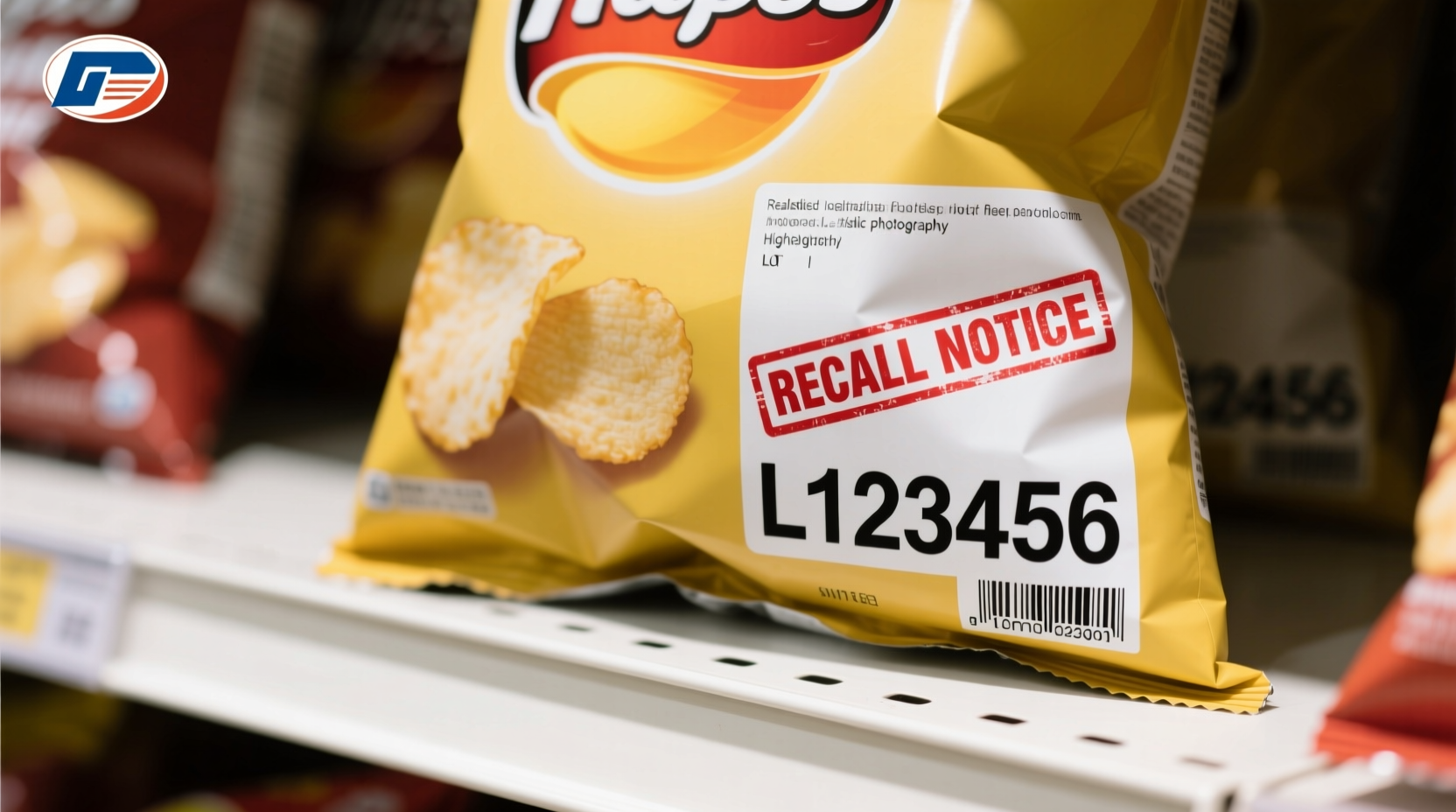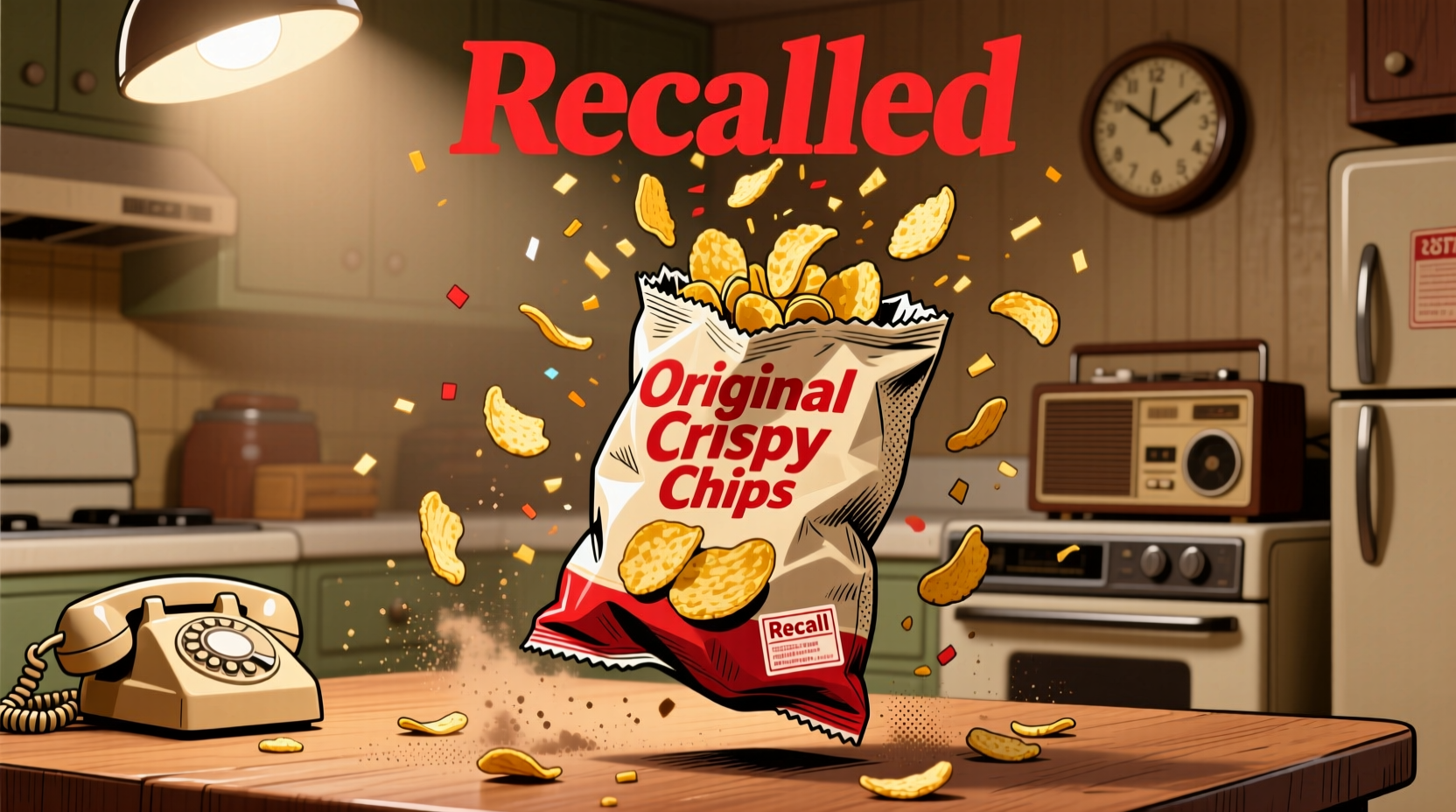As of October 2023, there are no active nationwide potato chip recalls reported by the FDA. However, several significant potato chip recalls occurred in 2022-2023 due to potential Listeria contamination, undeclared allergens, and foreign material concerns. This guide provides essential information to identify affected products, understand health risks, and take appropriate action if you have potentially unsafe potato chips.
Discovering your favorite snack might be unsafe creates immediate concern. When searching for recalled potato chips information, you need accurate, actionable details—not just generic warnings. This comprehensive resource delivers verified recall data directly from FDA announcements, explains specific risks associated with each incident, and provides clear steps to protect your family's health.
Current Potato Chip Recall Status and Recent Incidents
While no active potato chip recalls are currently listed on the FDA's website, consumers should remain vigilant about recent incidents that may still be in circulation. Food products often remain on shelves weeks after recall announcements, making awareness critical for food safety.
| Recall Date | Brand Affected | Reason for Recall | Product Identification |
|---|---|---|---|
| August 2023 | Nacho Cheese Flavored Tortilla Chips | Potential Listeria contamination | 10oz bags, UPC 7894561230, Best by 09/15/23 |
| March 2023 | Classic Potato Chips | Undeclared milk allergen | Family size 16oz, Lot #M23087, Sold at Midwest grocery chains |
| November 2022 | Barbecue Flavored Chips | Foreign material (plastic fragments) | 8oz bags, UPC 1234567890, Best by 12/01/22 |
This potato chip recall comparison chart highlights critical information you need to check your pantry. The FDA maintains that most recalls happen through voluntary company action after internal quality checks detect potential issues, rather than after consumers report problems.

Understanding the Food Recall Process Timeline
When a potential issue emerges with potato chips or other food products, a specific sequence of events unfolds:
- Initial detection (Company quality control or FDA testing identifies potential hazard)
- Risk assessment (Determining severity—Class I for serious health risks, Class II for temporary issues)
- Recall strategy development (Deciding scope: local, regional, or national)
- Public announcement (FDA posts recall notice within 24-72 hours of decision)
- Verification checks (FDA monitors retailer compliance for 90 days)
- Termination (Official end when FDA confirms product removal)
According to the FDA's Food Recall Process documentation, Class I recalls—which represent situations where there is a reasonable probability that the use of or exposure to a violative product will cause serious adverse health consequences or death—receive immediate attention and public notification.
Action Steps: What to Do If You Have Recalled Potato Chips
Discovering potentially unsafe products in your pantry requires prompt, specific action:
Step 1: Verify the Recall Status
Don't rely on social media rumors. Check official sources:
- Visit the FDA's Recalls, Market Withdrawals & Safety Alerts page
- Search by brand name or product description
- Verify lot numbers and expiration dates against recall notices
Step 2: Properly Handle Affected Products
Never consume potentially contaminated food. Instead:
- Place recalled potato chips in sealed plastic bags before disposal
- Do not open packages (prevents potential contamination spread)
- Wash hands thoroughly after handling
- Contact the manufacturer for refund instructions (most offer full reimbursement)
Step 3: Monitor for Health Concerns
Depending on the recall reason, watch for specific symptoms:
- Listeria concerns: Fever, muscle aches, headache, stiff neck, confusion, loss of balance (symptoms may appear 1-4 weeks after exposure)
- Allergen issues: Hives, swelling, difficulty breathing (typically within minutes to hours)
- Foreign material: Immediate mouth or throat injury
The CDC reports that Listeria monocytogenes causes approximately 1,600 illnesses and 260 deaths annually in the United States, making prompt action with contaminated products critical.
Context Boundaries: What Recalls Do and Don't Cover
Understanding the specific scope of potato chip product recalls prevents unnecessary panic while ensuring proper precautions:
- Recalls target specific lot numbers—other packages from same brand are typically safe
- "May contain" allergen warnings differ from actual recalls (consult manufacturer if uncertain)
- Store-brand products may share manufacturers with national brands—check both labels
- Recall timelines matter: Products past expiration date generally pose lower risk
According to USDA Food Safety guidelines, approximately 80% of food recalls involve mislabeled allergens rather than active contamination. This distinction helps consumers assess actual risk levels when evaluating recent potato chip recalls.
Staying Informed About Future Food Safety Alerts
Proactive monitoring protects your household before issues arise:
- Sign up for FDA email alerts at FDA Email Subscriptions
- Follow food safety accounts on social media (FDA, USDA Food Safety)
- Download the FoodKeeper app (developed by USDA, Cornell, and FDA)
- Check product labels for manufacturer contact information
Food industry experts recommend checking for recalls monthly, as products can remain on shelves for weeks after announcements. The USDA Food Safety and Inspection Service reports that 95% of consumers who check recall notices take appropriate action with affected products.
Frequently Asked Questions About Potato Chip Recalls
How can I check if my potato chips are part of a recall?
Check the FDA's recall database using the product's UPC code, lot number, and best-by date. Most potato chip bags display these details on the back or bottom of the package. Never rely solely on brand name, as recalls typically affect specific production batches.
What should I do if I consumed recalled potato chips?
Monitor for symptoms specific to the recall reason. For Listeria concerns, watch for fever and muscle aches for up to 70 days. For allergen issues, seek immediate medical attention if experiencing breathing difficulties. Contact your healthcare provider and保留包装 for potential testing.
Why do potato chips get recalled?
Common reasons include potential Listeria contamination (from processing environments), undeclared allergens (milk, soy, peanuts), and foreign material (plastic, metal fragments). Most recalls happen through voluntary company action after quality testing, not after consumer illness reports.
How long do recalled potato chips remain dangerous?
Pathogen risks like Listeria remain present throughout the product's shelf life. Allergen risks persist indefinitely. Foreign material hazards exist until the product is consumed or discarded. Always follow disposal instructions in the official recall notice.











 浙公网安备
33010002000092号
浙公网安备
33010002000092号 浙B2-20120091-4
浙B2-20120091-4